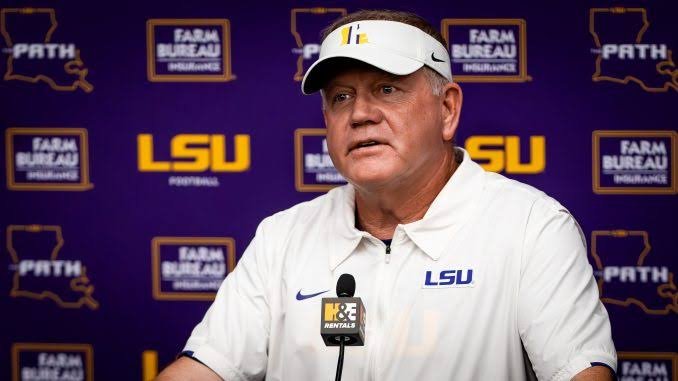The LSU Tigers head coach finds himself under mounting pressure as expectations in Baton Rouge continue to outpace the team’s recent performances. Following back-to-back underwhelming seasons, the program’s faithful are growing restless, particularly after what was anticipated to be a strong SEC debut ended in disappointment. The SEC is notorious for its unforgiving competition, and LSU’s struggles to assert dominance in key matchups have only intensified the criticism directed at the man in charge. For a program with national championship pedigree, mediocrity is simply not an acceptable standard.

Compounding the scrutiny is the reality that LSU’s administration had shown considerable faith in the coach’s leadership just recently, awarding him a lucrative six-year, $51 million contract extension. That move was designed to demonstrate stability and confidence in his vision, but in hindsight, it has become a flashpoint for critics. Many now argue that the investment has yet to yield a return on the field. The Tigers have been plagued by inconsistency, from erratic offensive execution to defensive lapses in high-stakes games, leaving fans questioning whether the program is truly on the right trajectory.
In an effort to reignite the program’s competitiveness, the head coach brought in former NFL executive Jim Nagy, a respected figure with extensive experience in player evaluation and development. The hire was meant to inject fresh ideas, bolster recruitment strategies, and enhance overall roster depth. While this move has been applauded for its forward-thinking approach, results have yet to fully materialize. Recruitment pipelines have shown flashes of promise, but on-field production hasn’t consistently translated into wins against top-tier opponents.

The discontent is not confined to fans alone. Within the SEC, rival programs have shown no hesitation in exploiting LSU’s current vulnerabilities, particularly in road games where the Tigers’ performance has faltered. Narrow losses in winnable matchups have been particularly frustrating, as they underscore a perceived lack of game-day adjustments and situational discipline. The criticism has reached the point where analysts are questioning whether the coach’s strategic philosophy aligns with the modern SEC landscape, which demands adaptability and relentless execution.
From a broader perspective, LSU’s brand remains strong, but momentum is a fragile commodity in college football. Prolonged underachievement risks eroding the program’s national standing and its ability to lure top recruits away from competing powerhouses. For a school that has tasted the pinnacle of success within the past decade, there is little patience for a prolonged rebuilding phase. The head coach’s challenge now is not only to produce wins but to restore belief that the Tigers are once again capable of contending for SEC and national titles.

The upcoming season is shaping up as a defining moment in his tenure. With a mix of returning veterans and promising newcomers, there is no shortage of raw talent on the roster. However, turning that potential into consistent, high-level performance will be the ultimate test. If the coach can engineer a strong rebound and navigate the brutal SEC schedule successfully, he could silence his critics and reaffirm the administration’s faith. If not, the calls for change—already growing louder—may become impossible to ignore.
